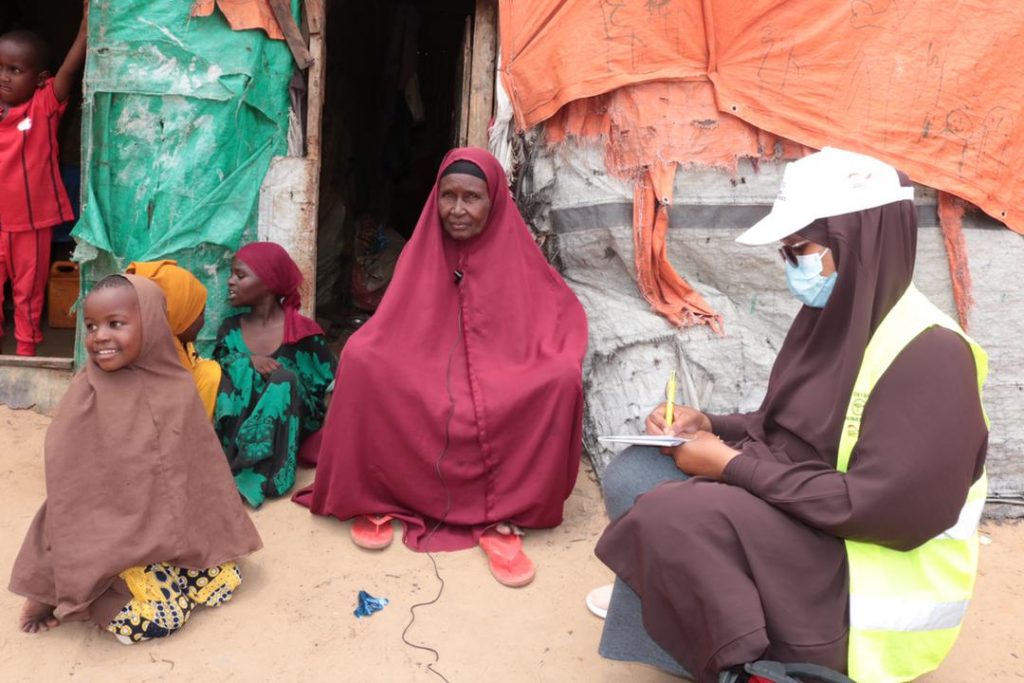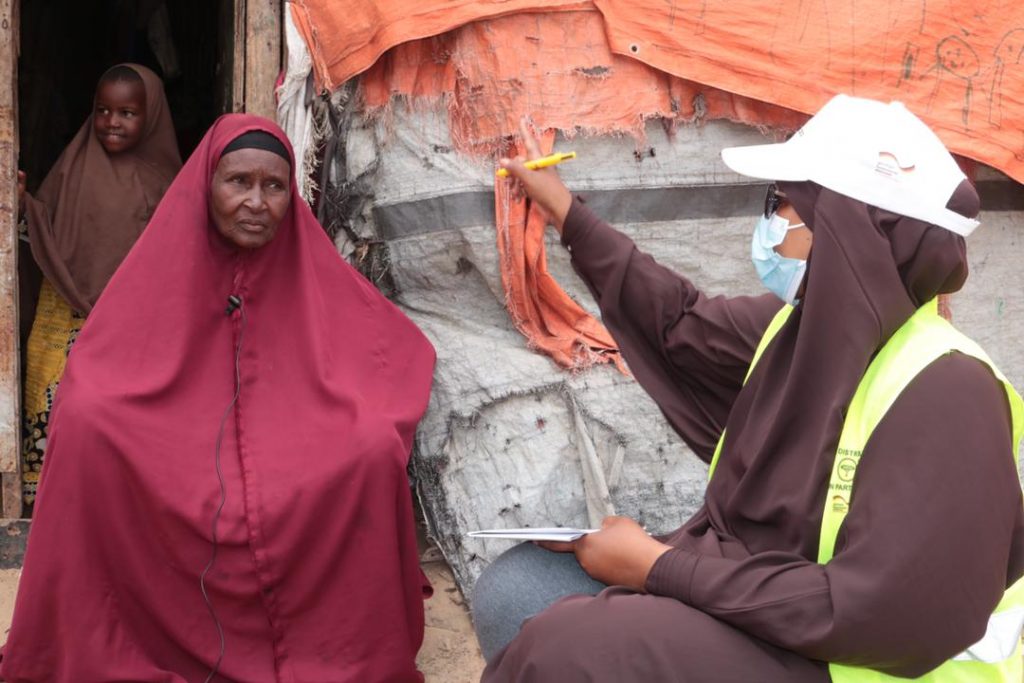
Faduma Abukar, is a 46 years old single mother living in an IDP settlement in Garasbaley, Somalia with her seven children (3 sons and 4 daughters). She was originally living in Barire village where she would farm and sell her surplus harvest at the nearby market together with her husband. That was how she would earn some money to provide for her large family’s needs. “Life was not as difficult as it is now here at this camp.” She reminisces, “Before the drought, I was able to provide food for my children and meet their other needs.” She added. Faduma got estranged from her husband when she moved in search of food, water and health care for her children due to the devastating drought.
“Life was not as difficult as it is now here at this camp.” She reminisces
For Faduma, leaving her home was not pleasant because the path to survival was difficult and excruciating. They moved in groups together with other families and their children, leaving behind everything not knowing exactly where they would seek their much-needed help. When they arrived at the IDP camp, they were faced with the urgent need for food and shelter.
The severity of food insecurity has rapidly worsened in Somalia with the prolonged drought. The nutritional deficiency caused by the lack of enough food in both variety and quantity poses a serious problem that has devastating consequences mostly for infants, young children, adolescent girls and women. For children under 5 years, chronic malnutrition has irreversible long-term outcomes including impaired intellectual development, delayed growth, physical disability, and a weakened immune system. According to the Integrated Food Security Phase 4 Classification (IPC) assessment, an estimated 1.5 million children in Somalia under the age of five years face acute malnutrition.

Faduma is a beneficiary of the food voucher program through Nomadic Assistance for Peace and Development (NAPAD) in partnership with Medico International (MI) and with funding from the German Federal Foreign Office (GFFO) together with other 2300 vulnerable households from the Banadir, Gedo and Galgadud regions of Somalia. The food voucher program targets the most vulnerable members of both IDP and host communities, specifically households most at risk of acute food insecurity. Typically, this includes households with restricted or no means of income, female-headed households, households with young children, widowed households, child-headed households, and households with elderly members.
“For us to survive, I had to borrow food from local traders, reduce my children’s meal times, and send some of them to live with my relatives.” Faduma Reported
Each household receives food vouchers that enable them to access 25Kgs of Rice, 25Kgs of wheat flour, 5liters of oil and 10Kgs of Beans from local traders each month for three months. The food voucher program is a dignified way of assisting the people facing some of the toughest experiences of their lives. It also provides them with nutritious food that goes a long way in fighting malnutrition.
With the immediate burden of food access alleviated among the beneficiaries, Faduma and her fellow women and girls can avoid engaging in negative coping mechanisms such as debt accumulation and child labour.
“I am relieved that I can now provide three meals a day for my children and they do not have to go to bed hungry.” Said the grateful mother
